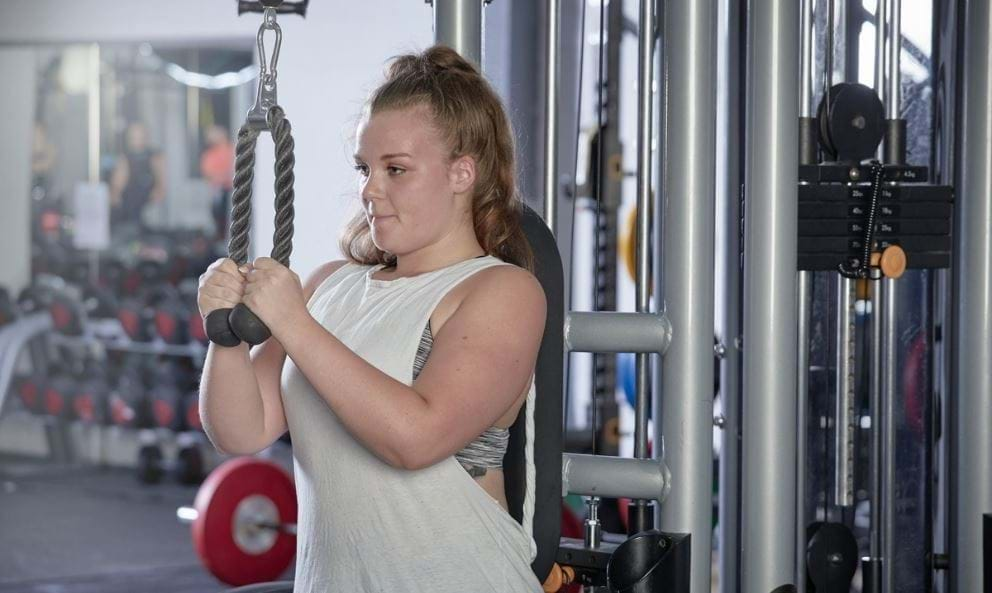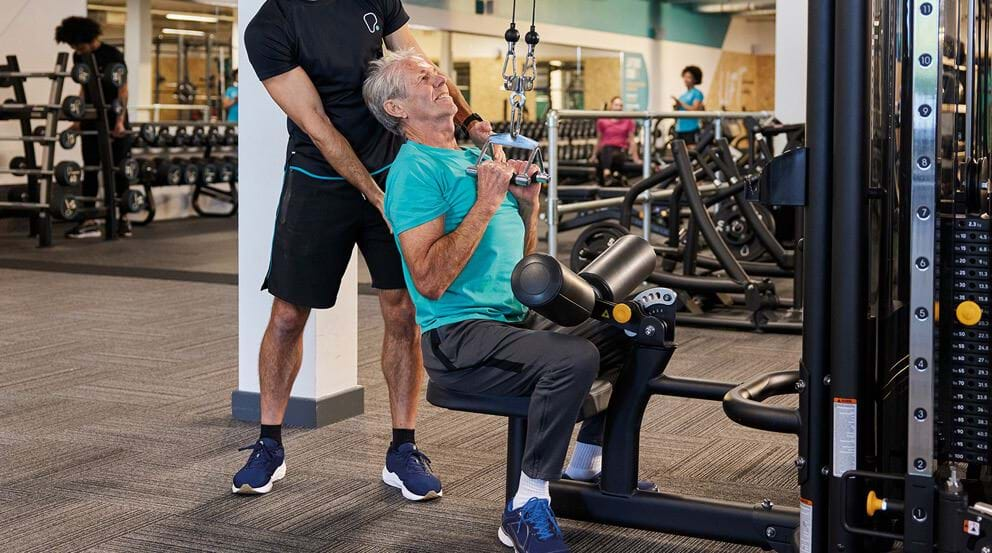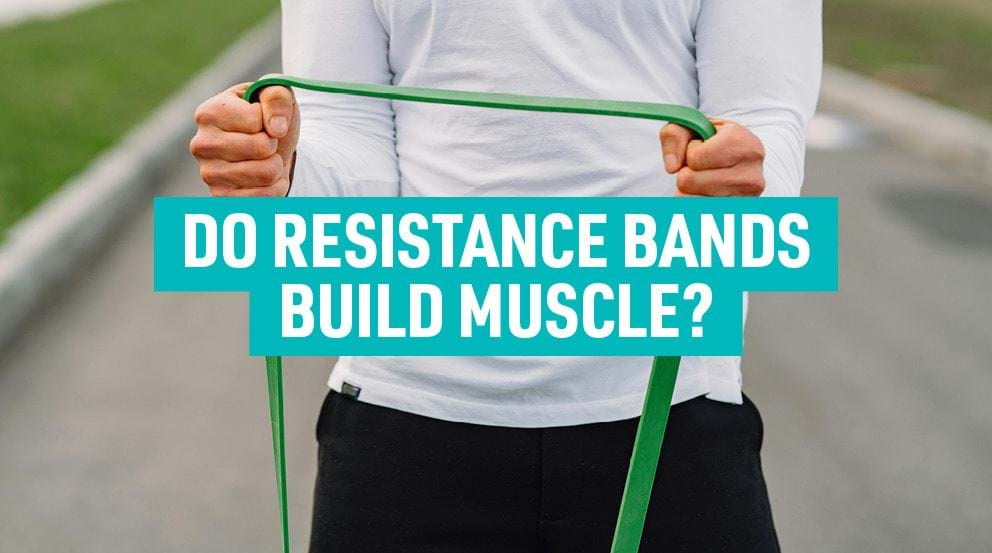Gym Machine Workout Routine For Beginners

New to the gym and feeling nervous about your first few visits? Having a solid workout plan in place can help to alleviate gymtimidation as you know what to do and how to do it. And if one piece of equipment is busy, you can always move on to the next exercise and circle back.
Following a workout routine is also one of the best ways to see progress over time as it allows you to spend time working on your form and increasing the weight or reps each week. Known as progressive overload, this helps to continually challenge the muscles which is key for muscle growth.
Read on for PureGym Birmingham based Personal Trainer Suzy Quinn's beginner weight machine routine to follow at the gym. She also looks at the components needed for a beginner weight machine workout so you can create your own plan to follow.
Why are gym machines good for beginners?
Unlike free weights exercises, which require a lot of strength, stability, and technical skill to do, fixed resistance machine exercises follow a fixed pattern of movement. This makes them easier to use and means you're much less likely to get an injury.
While these machines can sometimes get a bad rap, they're a great way for beginners to build strength and learn weightlifting movements safely. It's much better to do an exercise correctly on a machine, than an exercise incorrectly using dumbbells or barbells!
There is a huge range of resistance machines, meaning it's entirely possible to build a beginner gym machine workout routine that will help you to build strength and gain confidence in the gym. Once you get a hang of these exercises and have begun to build up some strength, you can progress to free weights if you prefer.
You can learn more about why fixed resistance machines are good for beginners here.
What should a beginner gym machine workout include?
If you're looking for a readymade gym machine workout plan to follow, jump straight to Suzy's beginner workouts here. If you're interested in creating your own routine, make sure to read these 4 tips for creating an effective beginner machine workout.
Opt for full body workouts
Full body workouts are a great way for beginners to build strength and endurance, without overdoing it. You can make great strength gains while only training two to three times a week, which allows for plenty of recovery. Full body workouts also burn calories more efficiently as you're working every muscle group.
Include compound movements
Compound movements are exercises which work multiple muscle groups in one go. This means you can work the full body in just a few exercises, so you don't need to spend hours working out each day.
Aim for 5-6 exercises per workout
When it comes to exercising, sometimes less is more. A good workout will have 5-6 exercises, with around 3-4 of these being compound exercises and the rest isolation exercises.
For a full body workout, this could look like one lower body compound exercise, one chest and shoulders compound exercise, and one back and shoulders compound exercise, plus an isolation exercise for the biceps and hamstrings in one workout, and isolation exercises for the triceps and quads in the next workout.
Programme 2-3 sets per exercise, with 12-15 reps per set
Starting with lighter weights and higher reps is ideal for beginners as it helps to build endurance and strength and means you can focus on form and building mind muscle connection.
Gym machine workout routine for beginners
If you'd rather follow a workout plan that's been created by an expert, we've got you covered. Suzy has shared two full body workouts that can be alternated between two to three times a week so that you hit all the muscle groups at least twice per week, which will help to build muscle and strength.
Make sure to choose a resistance where the last few reps are challenging, but you can keep good form.
Workout 1
Leg press – 3 x 15 reps
The leg press is a compound exercise that works your quads, hamstrings, calves, and glutes. It’s similar to the squat but requires less core strength and stability, and is easier to do correctly.
Hamstring curl -- 2 x 15 reps
The hamstring curl is an isolation exercise that works the hamstrings, which are the muscles spanning the back of your thighs. Many people struggle with tight, weak hamstrings as a result of prolonged periods of sitting, so targeting these muscles is important for building strong, balanced legs.
Chest press – 3 x 12 reps
The bench press is a great chest exercise, but it’s very technical and requires a lot of strength – something that beginners may not have. The chest press machine is great for beginners who want to mimic this compound exercise and build up strength in the chest, shoulders, and triceps, without getting underneath the barbell.
Lateral pull down – 3 x 12 reps
The lat pulldown machine is another compound exercise which works the muscles in the back, particularly the lats, and the biceps and forearms.
Bicep curl – 2 x 15 reps
The bicep curl machine is a great way for beginners and experienced lifters to target the biceps as it stabilises the arm and ensures only the biceps are working.
Shoulder press – 2 x 15 reps
The shoulder press machine is great for really working the shoulders. Using free weights requires a lot of core stability - removing the need for this allows all your focus to be on the delts.
Workout 2
The second workout shares the same compound exercises (leg press, chest press, lat pull down, and shoulder press) as workout 1, but swaps the isolation exercises to focus on different muscles. Instead of the hamstring curl, you'll use the leg extension machine to target the quads, and instead of the bicep curl machine, you'll use the tricep extension machine to work the triceps, which are the muscles on the back of your arms
Leg press – 3 x 15 reps
Leg extension – 2 x 15 reps
Chest press – 3 x 12 reps
Lateral pull down – 3 x 12 reps
Tricep extension – 2 x 15 reps
Shoulder press – 2 x 15 reps
As you get stronger and more confident, you might want to switch some machine exercises for free weight versions -- like swapping a leg press for a squat. Make sure to check out our beginner's guide to training with free weights here, or speak to a Personal Trainer at your gym for advice. You can find your nearest PureGym here.


